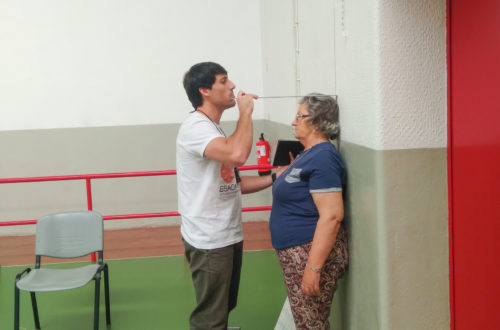Autores
Tomas-Carus et all
Título
Dual task performance and history of falls in community-dwelling older adults
Publicado
Revista Experimental Gerontology 2019, 120 p.35-39
Abstract
Background
Falls are a common problem for older adults, and the identification of people at high risk of falling is a major challenge to health systems.
Objective
To evaluate the association between the history of falls and single-task Timed Up and Go Test (single TUG) or dual-task TUG variables.
Methods
Three hundred seventy seven community-dwelling older persons, with ages ranging from 65 and 92 years, participated in this cross-sectional study. Each participant performed two tests: single TUG and dual TUG. The cognitive task for dual TUG consisted of counting backward by one from 100 while performing the test. The number of cognitive errors, cognitive stops and motor stops were recorded. A new variable comprising time, errors and stops in the dual TUG was computed.
Results
The number of falls was significantly associated with mean single and dual TUG performance, mean cognitive errors, mean cognitive stops and mean motor stops. The score in the single TUG time was not able to significantly classify participants as fallers or non-fallers in any of the sexes. On the other hand, the variable “dual TUG time spent adding cognitive stops and cognitive errors” achieved the best ability to classify women as fallers or non-fallers, while “dual task cost” and “dual TUG time spent adding cognitive stops” were the best
variables to classify men.
Conclusions
Dual TUG including cognitive stops and cognitive errors may be more capable than the single TUG to detect differences and accurately classify fallers and non-fallers in the elderly.
Keywords
Elderly, Simultaneous task, Timed-up and go, Balance, Falling risk


